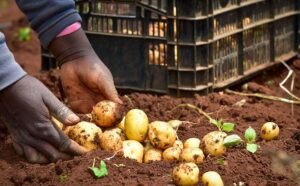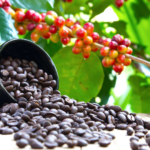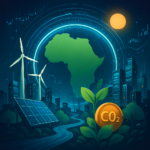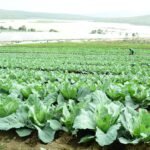By Panagrimedia Correspondent, July 30, 2024, The International Fund for Agricultural Development (IFAD) and the Bank Al Maghrib have agreed to jointly take action in increasing funding to rural development. IFAD issued its eighth sustainable bond, as a private placement, under its Sustainable Development Finance Framework to the central bank of Morocco today. With the issuance of this €100 million bond, IFAD begins to implement its 2025 funding plan.
The proceeds will contribute to finance IFAD’s development projects globally, focusing on transforming rural areas to make them more productive and prosperous, ultimately improving the livelihoods, food security and resilience of millions of rural people.
“We are delighted to partner for the first time with a Central Bank, and particularly with Bank Al Maghrib. The Bank has an explicit 10 per cent target of Environmental Social and Governance investments and applies a Corporate Social Responsibility Policy that is aligned with IFAD’s values,” said Natalia Toschi, Head of Funding, IFAD. “Morocco is one of IFAD’s founding Member States. In Morocco, IFAD has an active project portfolio of almost US$400 million delivering impact and reaching more than 700,000 households.”
IFAD projects enable small farming communities to improve their agricultural practices and access technologies, markets and value chains to increase their production and earn a decent income. For example, in Morocco, IFAD has worked extensively with farming cooperatives, grassroots and women’s organizations to develop new food value chains from production to transformation and commercialization. Globally, IFAD also invests significantly to support small-scale farmers to adapt to climate change.
About 3 billion people live in the rural areas of developing countries. While producing half of the world’s food, small-scale farmers often live in poverty. Eighty percent of the world’s poorest people live in rural areas. Yet, investments in rural development and small-scale farming can bring significant economic, social and environmental returns, while contributing to the 2030 Sustainable Development Goals.







